The reputation of memory and the memory of reputation - revival of the Piromalli family in Gioia Tauro
La reputazione della memoria e la memoria della reputazione - revival della famiglia Piromalli a Gioia Tauro
The first thing to know about what is considered one of the most important - perhaps *the* most important - family of the ‘ndrangheta - the Piromalli family from Gioia Tauro - is that they *don’t like* drug trafficking. Or at least, their most apical member doesn’t. Giuseppe - Pino - Piromalli, considers narcotrafficking something we don’t do. He still support one of his nephews who got involved with drugs because “don’t worry, uncle won’t abandon you”, but essentially he is not pleased by his behaviours as he says: “it’s a lifetime that we say that we won’t touch this stuff…and you must not touch it!”.
Now, this might come as a surprise to some, as the Piromalli live and operate in Gioia Tauro, where one of Italy’ biggest transhipment ports is - a port that was wanted and partially built by this family together with others over 50 years ago now. The port of Gioia Tauro is one of the arrival points of drugs, cocaine primarily, in Italy and the family has been often mentioned - in the past, not now - to offer sovereignty and protection to others trafficking through there.
In Operation Res Tauro of the Antimafia District Prosecution Office (DDA) of Reggio Calabria of 23 September, Pino Piromalli gets arrested. He is 80 years old and he spent already over 22 years in prison (he came out in 2021). You can read a lot about the operation on the newspapers, especially LaCNews and Corriere della Calabria, but here I want to reflect on another aspect that this operation sheds light on.
We knew it already: some families more than others like the ‘old ‘ndrangheta’ adagio. The idea that as men of honour we don’t do drugs, but we do do other stuff, including extortion or murder, if we frame them as ‘honour’ related offences or -better- as a matter of respect. Honour and respect do not come cheap, but they come together for this ‘ndrangheta (the ‘true’ ‘ndrangheta I would argue): to be respected is to be recognised as honourable; to lose respect is dishonourable.
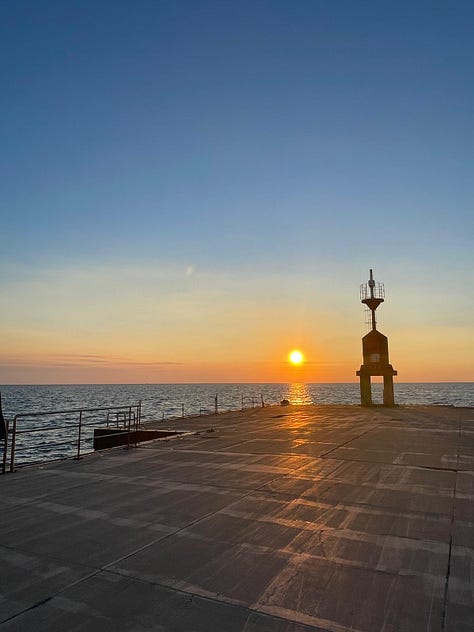
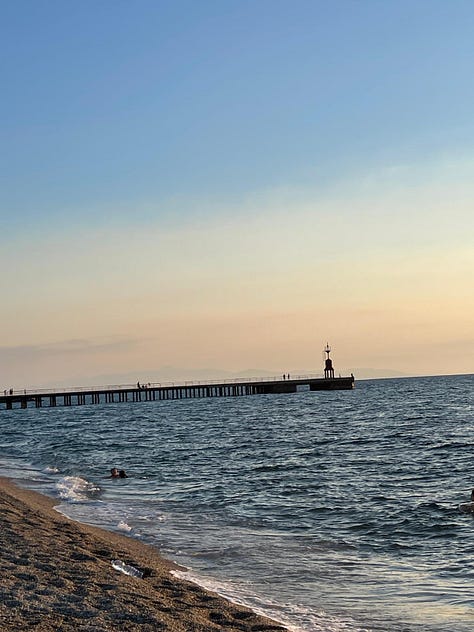
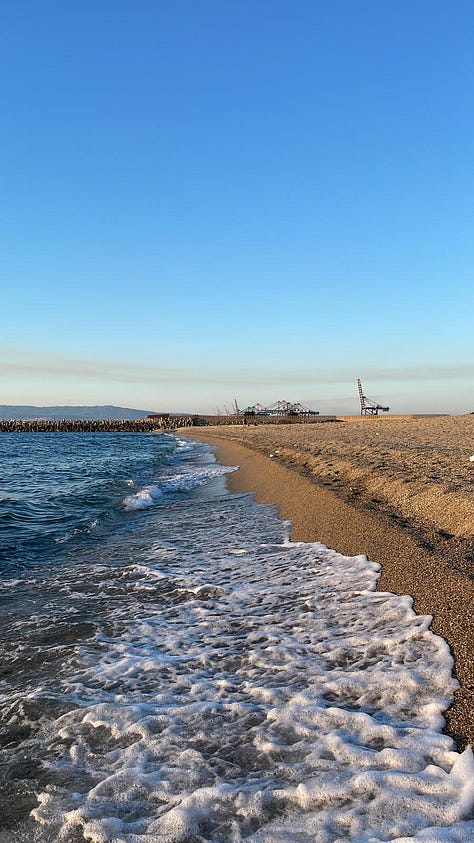
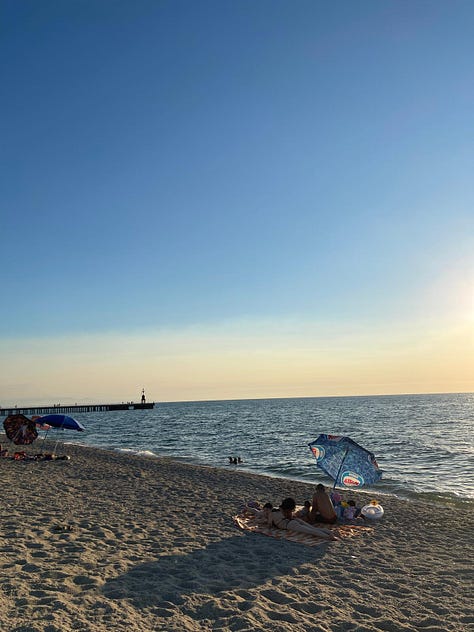
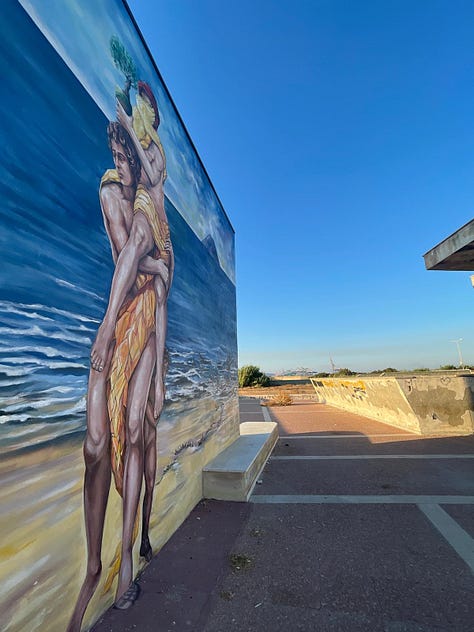
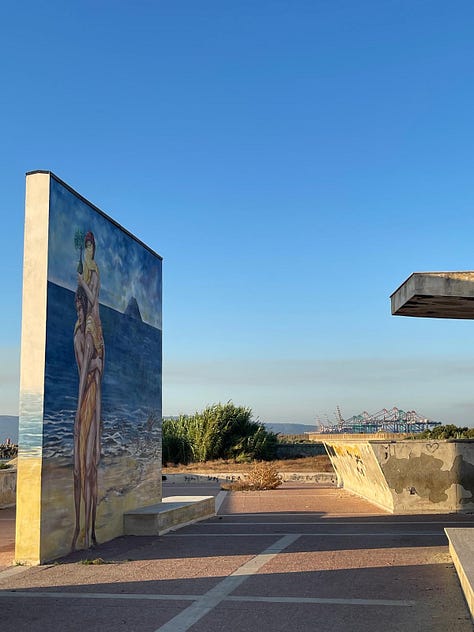
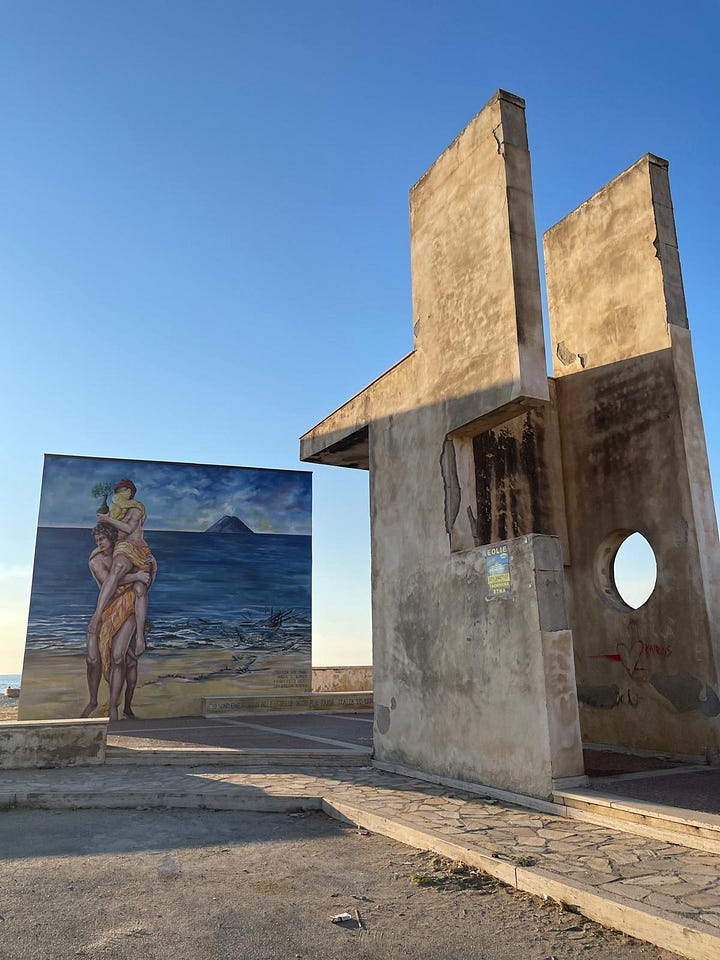
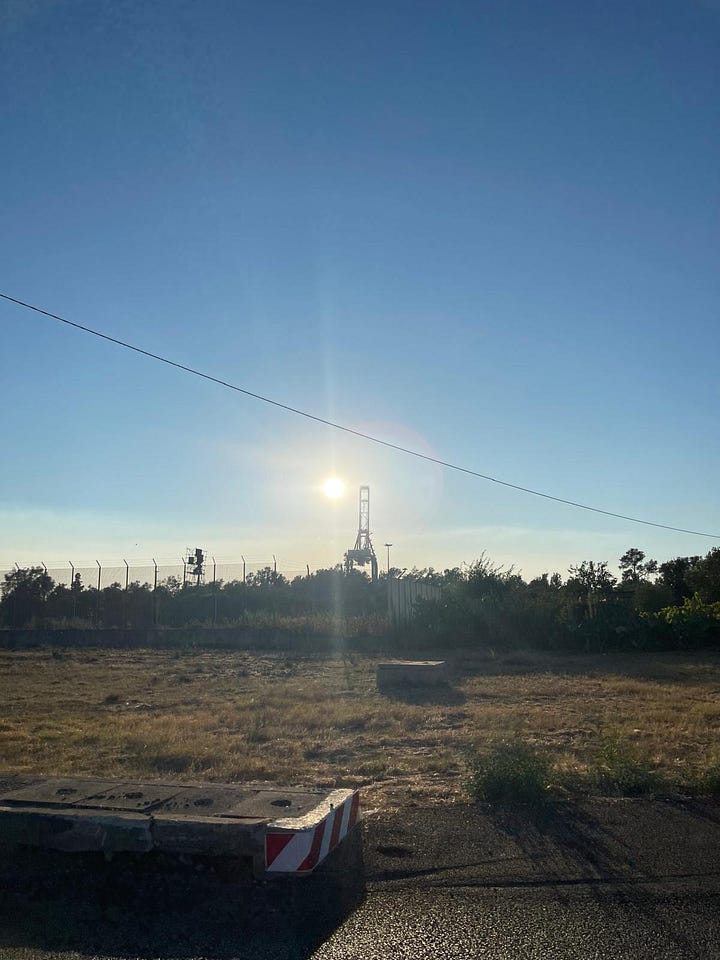
(Gioia Tauro, the sea, 2025, copyright Anna Sergi)
Pino Piromalli is an old guy who spent a good portion of his adult life in prison for murder and mafia-related offences. In his absence, the family has been run by his two brothers, Antonio and Gioacchino: the three brothers have often been referred to as “the commission”, inasmuch as their collective ‘aura’ of power resonated far beyond Gioia Tauro.
The moment Pino came out of prison, he seemed already obsessed with getting back power: his brother insists that he needs to show his face in the town centre, so that people see him, and by seeing him they know the family has gained back his most feared and respected leader. Pino is mad at his brothers because they didn’t act appropriately during his absence: they didn’t support his wife with the right amount of money; they didn’t save money for hi, his portion of the proceeds of any criminal activities, as they were expected to do.
He is cheap, really: we read about his complaints and his recriminations towards his family, all fed by a clear sense that as he was back he was “the owner of Gioia” and that Gioia needed to be ‘restored’ (hence why the name Res Tauro - which sounds like restoration and alludes to the name Gioia Tauro too) to be back to being “a tiger”. His associates are devoted to him (“you are the boss of me, the owner of my family”, says one of them) and he, Pino, is very good at imparting lessons, those lessons he learned from his own relatives when he was a young man: how to behave with money, how to make it count.
Pino Piromalli is arrogant because he can, because others let him:
“You see, your father, I can see he has a short memory…until the Piromalli exist in Gioia, the Piromalli rule and no one in the world…no one….I told him, I will go and bury him with the head out….the land you buy, you buy it there, in Gioia, I told him, if Pino Piromalli wants to”.
His brother and him are constantly rehashing memories from the past. The word “ricordo” (the verb ‘I remember’ or the noun ‘memory’) appears 280 times in the materials of the arrest warrant.
They remember the time in the 1940s when they met Lucky Luciano (yes American gangster Lucky Luciano).
They remember when they ‘created’ the port of Gioia Tauro in the 1960s-1970s.
They remember when they ‘won’ against the clan Mammoliti from Castellace thus becoming the main clan of the “Piana” (the flatland of Gioia Tauro).
They remember how it was back in the days to ‘make someone a malandrino’, a ‘ndranghetista, with the baptism or the so-called ‘cut of the tail’.
As Maria, Pino’s wife, reminds us “we only need people to remember us, to have a thought for us”.
Most of all they remember and they remind others about the rules of the game: extortions in Gioia Tauro need to be approved by them; proceeds need to be divided for the whole family; support needs to be given to the families of detained associates; and crucially, respect must be given to memory.
When Pino meets an entrepreneur named Cosentino he starts by remembering one of the relatives; when Pino himself was 15 a Cosentino man was coming to Gioia to sell oil to Pino’s family. So Pino wants to know whether this trader was a relative of the entrepreneur he is meeting because if this is the case then this entrepreneur is trustworthy “like his ancestors, uncles and aunties”. But he has a request: once memory has been established, this brings about both duties and expectations of reputation. He demands what effectively is extortion:
“In life, as you surely know, there are the lucky ones and we are part of that, right'? Lucky ones and less lucky ones, so we need to give a hand to those who are not as fortunate as we are (…) and this is why I am seeing you, once, twice, three times per year, a ‘present’ we need to establish, it’s not about you, the entrepreneur or your company, in Gioia, it’s about people who work at the port, who work in Gioia, various people, if we manage to support them…this is because we are in Gioia Tauro, you understand?”
The entrepreneur responds that they are happy to be involved, as they have received a lot of help in their business by the family and others associated to them on the territory, and because Pino Piromalli’s words are gospel.
Pino asks for ‘respect’, for his age and his position, he seems rather obsessed by people observing the rules of the family and the hierarchy. From respect stems protection:
“The Saint protects his faithful ones, if they deserve it! if they are lucifers he sends them away, the Saint, and you, you are showing that you are just like Lucifer”.
Honour and respect, protection and reputation, are the key tenets of the Piromalli family in Gioia Tauro. Their extortions, their attempts to accumulate gains from others’ activities, their attempts to control commercial activities in the area, they all stem from an idea of what they are, who they should be.
Their identity is not merely what we call a ‘ndrangheta (or mafia) subculture but rather an ideological turn on this subculture, which makes them act with entitlement, demand action, demand obedience, demand - with arrogance - recognition of memory and its reputation.
Not every ‘ndrangheta clans have this trait, not every clan can use memory and reputation this way. Not every clan has this type of reputation on memory forged into a whole territory. The “owners” of Gioia still think they can and there are people who still let them think that.
La prima cosa da sapere su quella che è considerata una delle famiglie più importanti - forse *la* più importante - della 'ndrangheta, la famiglia Piromalli di Gioia Tauro, è che *non ama* il traffico di droga. O almeno, il suo membro più importante non lo ama. Giuseppe - Pino - Piromalli considera il narcotraffico qualcosa “che noi non facciamo”. Continua a sostenere uno dei suoi nipoti che è finito nel mondo della droga perché “lo zio non ti abbandonerà”, ma in sostanza non è contento del suo comportamento, come dice: “siccome noi dí queste cose abbiamo detto una vita intera che non ne tocchiamo... e allora tu non le devi toccare...”.
Ora, questo potrebbe sorprendere alcuni, dato che i Piromalli vivono e operano a Gioia Tauro, dove si trova uno dei più grandi porti di trasbordo d'Italia, un porto che è stato voluto e parzialmente costruito da questa famiglia insieme ad altre più di 50 anni fa. Il porto di Gioia Tauro è uno dei punti di arrivo della droga, principalmente cocaina, in Italia e la famiglia è stata spesso citata - in passato, non ora - per offrire sovranità e protezione ad altri trafficanti che transitano da lì.
Nell'operazione Res Tauro della Procura Distrettuale Antimafia (DDA) di Reggio Calabria del 23 settembre, Pino Piromalli viene arrestato. Ha 80 anni e ha già trascorso oltre 22 anni in carcere (è uscito nel 2021). Si può leggere molto sull'operazione sui giornali, in particolare su LaCNews e Corriere della Calabria, ma qui voglio riflettere su un altro aspetto che questa operazione mette in luce.
Lo sapevamo già: alcune famiglie più di altre amano il vecchio adagio della 'ndrangheta. L'idea che come uomini d'onore non facciamo uso di droga, ma facciamo altre cose, tra cui estorsioni o omicidi, se li inquadriamo come reati legati all'onore o, meglio, come una questione di rispetto. L'onore e il rispetto non sono a buon mercato, ma per questa ‘ndrangheta (la 'vera’ 'ndrangheta, direi) vanno di pari passo: essere rispettati significa essere riconosciuti come onorevoli; perdere il rispetto è disonorevole.
Pino Piromalli è un uomo anziano che ha trascorso gran parte della sua vita adulta in prigione per omicidio e reati legati alla mafia. In sua assenza, la famiglia è stata gestita dai suoi due fratelli, Antonio e Gioacchino: i tre fratelli sono stati spesso definiti “la commissione”, in quanto la loro “aura” collettiva di potere risuonava ben oltre Gioia Tauro.
Nel momento in cui Pino è uscito di prigione, sembrava già ossessionato dall'idea di riconquistare il potere: suo fratello insiste che deve farsi vedere in centro, in modo che la gente lo veda e capisca che la famiglia ha riacquistato il suo leader più temuto e rispettato. Pino è arrabbiato con i suoi fratelli perché non hanno agito in modo appropriato durante la sua assenza: non hanno sostenuto sua moglie con la giusta quantità di denaro; non hanno risparmiato denaro per lui, la sua parte dei proventi di qualsiasi attività criminale, come ci si aspettava che facessero.
È davvero un po’ accattone: leggiamo delle sue lamentele e delle sue recriminazioni nei confronti della sua famiglia, tutte alimentate dalla chiara consapevolezza che, essendo tornato, era “il padrone di Gioia” e che Gioia doveva essere “restaurata” (da qui il nome Res Tauro, che suona come ‘restauro’ e allude anche al nome Gioia Tauro) per tornare ad essere “una tigre”. I suoi collaboratori gli sono devoti (“tu sei il mio capo, il padrone della mia famiglia”, dice uno di loro) e lui, Pino, è molto bravo a impartire lezioni, quelle lezioni che ha imparato dai suoi stessi parenti quando era giovane: come comportarsi con il denaro, come farlo fruttare.
Pino Piromalli è arrogante perché può esserlo, perché gli altri glielo permettono:
"vedete, vostro padre..."...si vede che... è di memoria corta..."» « "... fino che esistono i PIROMALLI a Gioia..." comandano i PIROMALLI e nessuno al mondo..." "... nessuno..." gli ho detto "... perché vado lo prendo e lo sotterro con... con la testa di fuori"» «"la terra là la comprate... là ed in tutto Gioia..." gli ho detto….se lo vuole Píno PIROMALLI...
Lui e suo fratello rivangano continuamente ricordi del passato. La parola “ricordo” (il verbo ‘ricordo’ o il sostantivo “ricordo”) compare 280 volte nei documenti del mandato di arresto.
Ricordano quando, negli anni '40, incontrarono Lucky Luciano (sì, proprio il gangster americano Lucky Luciano).
Ricordano quando hanno “creato” il porto di Gioia Tauro negli anni '60-'70.
Ricordano quando hanno “vinto” contro il clan Mammoliti di Castellace, diventando così il clan principale della “Piana” (la pianura di Gioia Tauro).
Ricordano com'era ai tempi “fare di qualcuno un malandrino”, un 'ndranghetista, con il battesimo o il cosiddetto “taglio della coda”.
Come ci ricorda Maria, la moglie di Pino, “abbiamo solo bisogno che la gente si ricordi di noi.
Soprattutto ricordano e ricordano agli altri le regole del gioco: le estorsioni a Gioia Tauro devono essere approvate da loro; i proventi devono essere divisi tra tutta la famiglia; deve essere dato sostegno alle famiglie dei soci detenuti; e, cosa fondamentale, deve essere rispettata la memoria.
Quando Pino incontra un imprenditore di nome Cosentino, inizia ricordando uno dei suoi parenti: quando Pino aveva 15 anni, un uomo di Cosentino veniva a Gioia per vendere olio alla sua famiglia. Quindi Pino vuole sapere se questo commerciante era un parente dell'imprenditore che sta incontrando, perché se così fosse, allora questo imprenditore sarebbe affidabile “come i suoi antenati, zii e zie”. Ma ha una richiesta: una volta stabilito il ricordo, questo comporta sia doveri che aspettative di reputazione. Egli esige ciò che è effettivamente un'estorsione:
“nella vita come lei senz'altro sa, ci sono fortunati e noi ci riteniamo tali, no?! fortunati, e i meno fortunati, e allora dobbiamo dare una mano di aiuto a chi non è fortunato come noi (...] e io questo per questo vi ricevo... una volta, due volte, tre volte l'anno, no?!... un... un pensierino che dobbiamo stabilire... non è_ vedete... rivolto a voi... all'imprenditore COSENTINO, all'azienda... che lavora a Gioia Tauro, no?!... ora, gente che lavora al porto... lavora... e tutte queste cose... c'è gente che sarà fortunata di lavorare al porto... e non c'è... inc... c'è gente di tutte le maniere... e allora chi riusciamo a cercare di imbarcare, ad essere vicino a chi è meno fortunato”
L'imprenditore risponde che sono felici di essere coinvolti, poiché hanno ricevuto molto aiuto nella loro attività dalla famiglia e da altre persone a loro associate sul territorio, e perché le parole di Pino Piromalli sono vangelo.
Pino chiede “rispetto” per la sua età e la sua posizione, sembra piuttosto ossessionato dal fatto che le persone osservino le regole della famiglia e della gerarchia. Dal rispetto deriva la protezione:
«il Santo protegge í suoi fedeli, però se meritano! se poi sono luciferi li caccia il Santo e voi state dimostrando che siete come proprio come lucifero... "»
Onore e rispetto, protezione e reputazione sono i principi fondamentali della famiglia Piromalli a Gioia Tauro. Le loro estorsioni, i loro tentativi di accumulare guadagni dalle attività altrui, i loro tentativi di controllare le attività commerciali nella zona, tutto questo deriva da un'idea di ciò che sono, di ciò che dovrebbero essere.
La loro identità non è semplicemente quella che chiamiamo sottocultura della 'ndrangheta (o mafia), ma piuttosto una svolta ideologica di questa sottocultura, che li porta ad agire con presunzione, a esigere azioni, a esigere obbedienza, a esigere - con arroganza - il riconoscimento della memoria e della sua reputazione.
Non tutti i clan della 'ndrangheta hanno questa caratteristica, non tutti i clan possono usare la memoria e la reputazione in questo modo. Non tutti i clan hanno questo tipo di reputazione sulla memoria forgiata in un intero territorio. I “padroni” di Gioia pensano ancora di poterlo fare e ci sono persone che continuano a lasciarglielo credere.

